
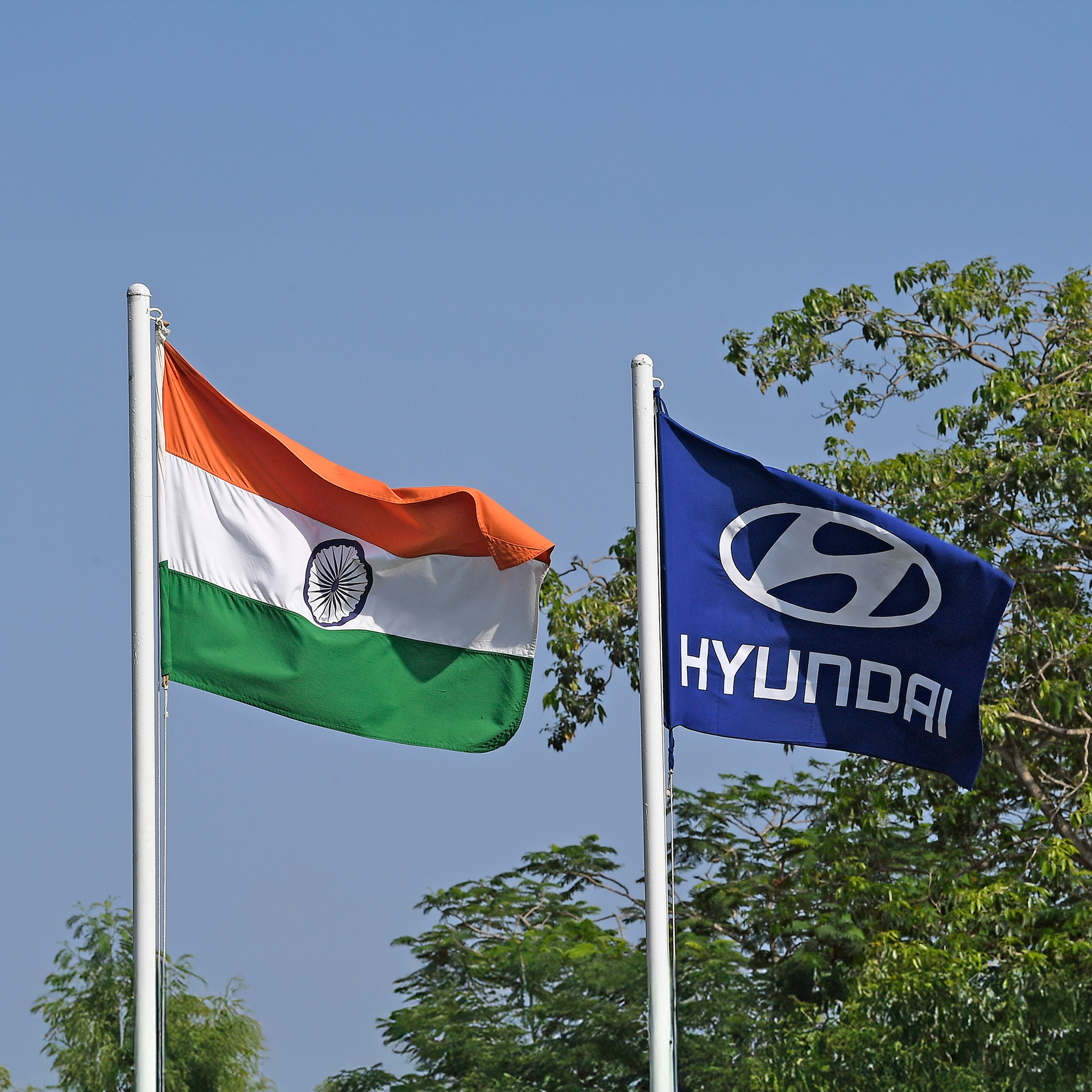


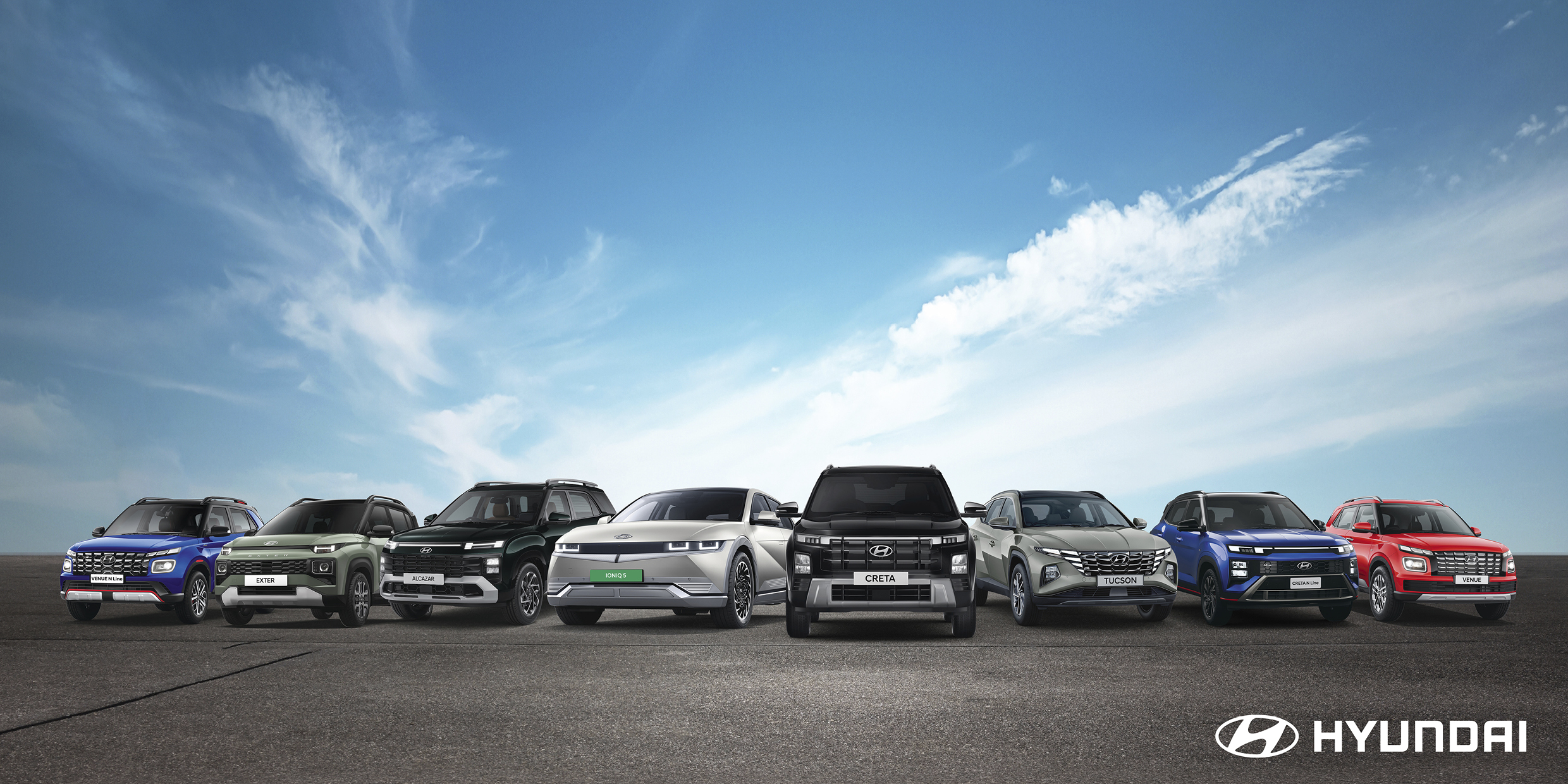
India, a major economic power with a population of 1.4 billion, is now the world’s third-largest automobile market. In 2024 alone, new vehicle sales are projected to reach 5 million units, including 4.32 million passenger cars. With rapid growth in this segment, passenger car sales alone are expected to surpass 5 million by 2030—supported by the government’s goal of making electric vehicles account for 30% of all vehicle sales. These developments firmly position India as a key player in the future of mobility.
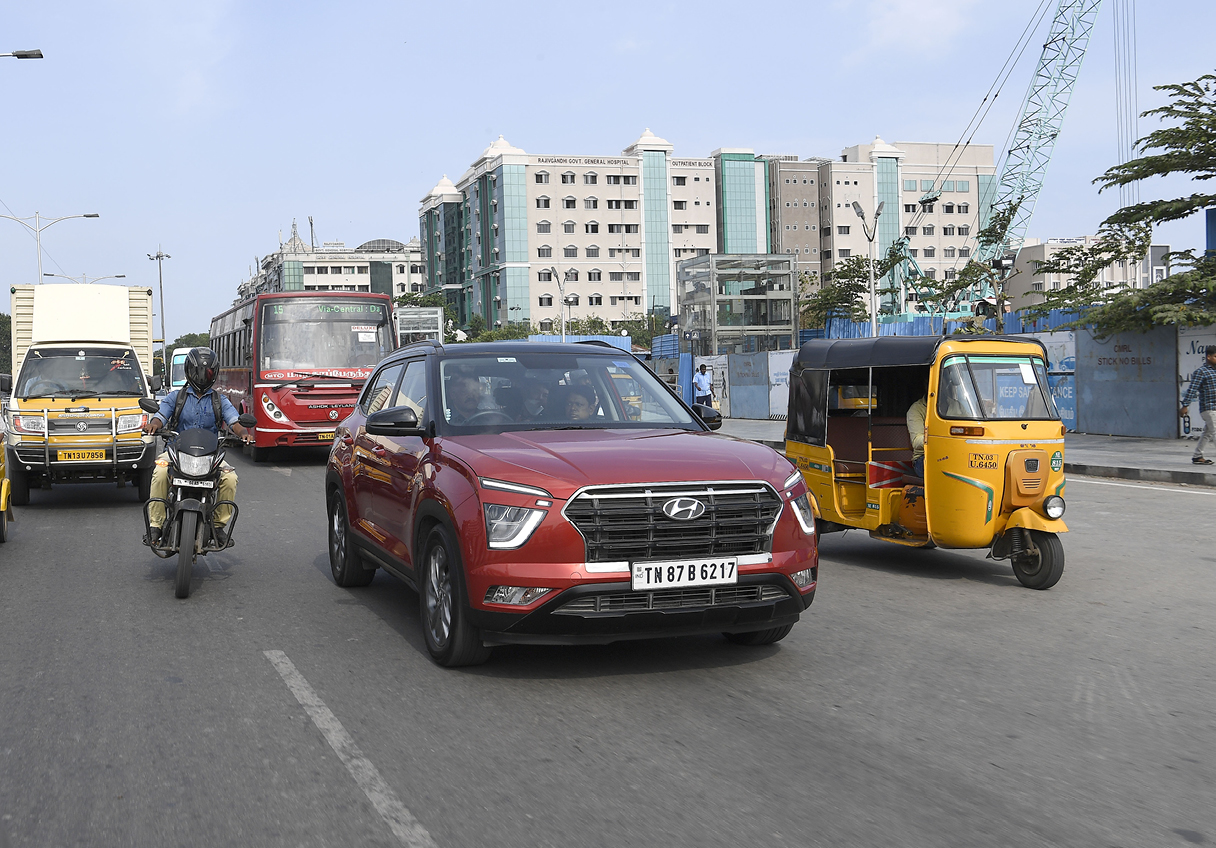
Hyundai Motor Group holds a strong position in India’s automotive market. In 2024, Hyundai Motor Company is projected to sell 605,433 units, while Kia is expected to deliver 255,038—together accounting for over 20% of the market. This achievement reflects not only the Group’s leadership as a global mobility provider but also its enduring commitment to corporate citizenship since entering the Indian market in 1996.
HMG’s approach to social contribution in India is grounded in sincerity. Hyundai Motor India began its initiatives in 2004 in Chennai, Tamil Nadu, where its manufacturing plant is located, and established the Hyundai Motor India Foundation (HMIF) in 2006 to further its long-term commitment to social responsibility. These efforts go far beyond symbolic gestures. A prime example is its ongoing circular waste project, which upcycles community waste into biogas and electricity for donation—a model of sustainable resource circulation.
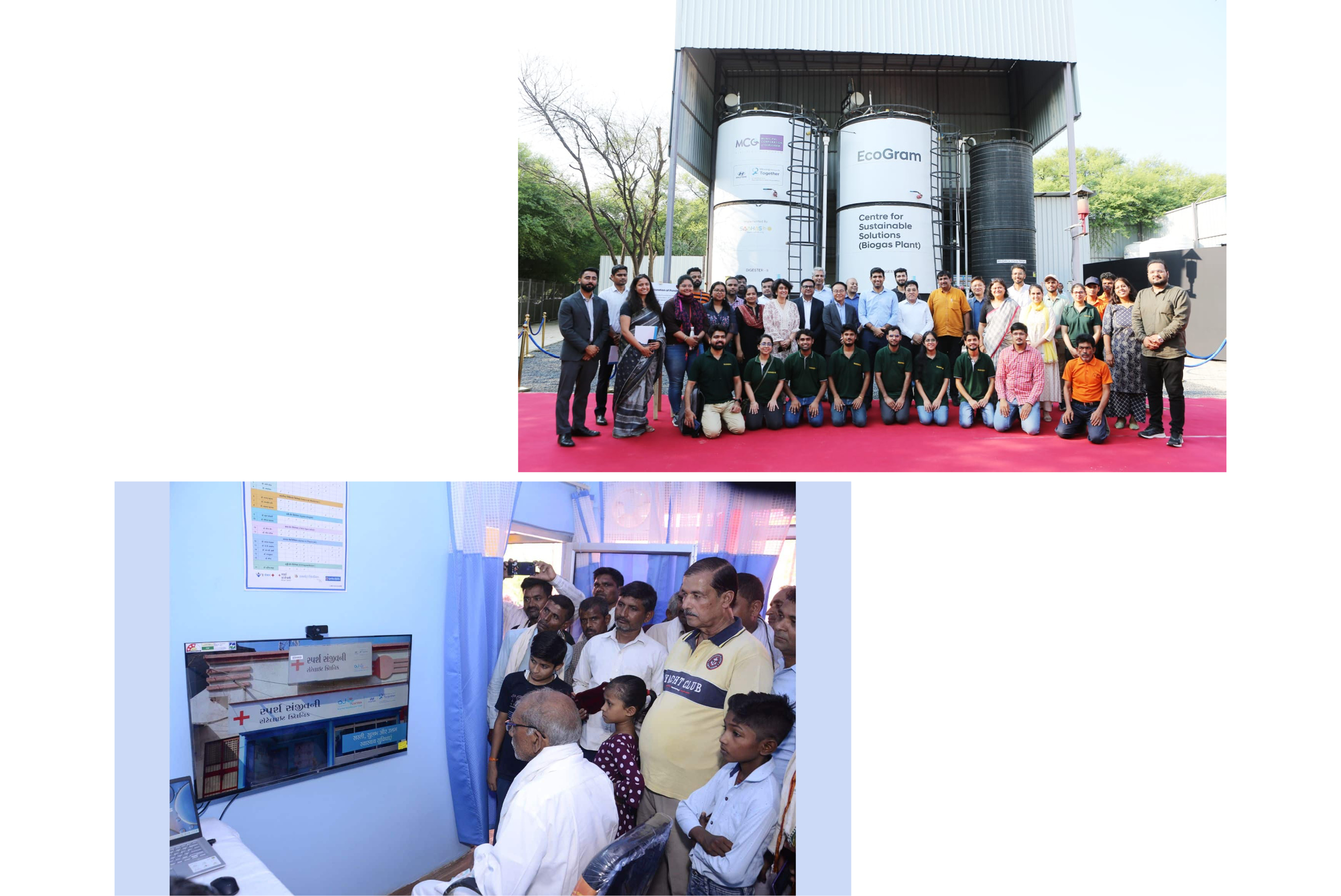
HMG continues to make a meaningful impact on Indian society through a wide range of initiatives. To improve traffic safety, the Group installed CCTV systems and developed traffic management infrastructure in Chennai, where its manufacturing plant is located. It has also deployed mobile medical clinics in seven of India’s 28 states, focusing on rural areas with limited access to healthcare. In addition, HMG supports youth development through job training programs and fosters emerging creative talent by sponsoring exhibitions and performances.
Hyundai Motor Group has prioritized localization to meet the specific demands of the Indian market. This includes the development of exclusive models designed to reflect the country’s social dynamics, cultural context, environment, and road conditions. As demand for SUVs continues to rise, the Group has expanded its lineup with a broad range of SUV offerings—while also introducing hybrid and electric powertrains to give Indian consumers a wider array of choices.
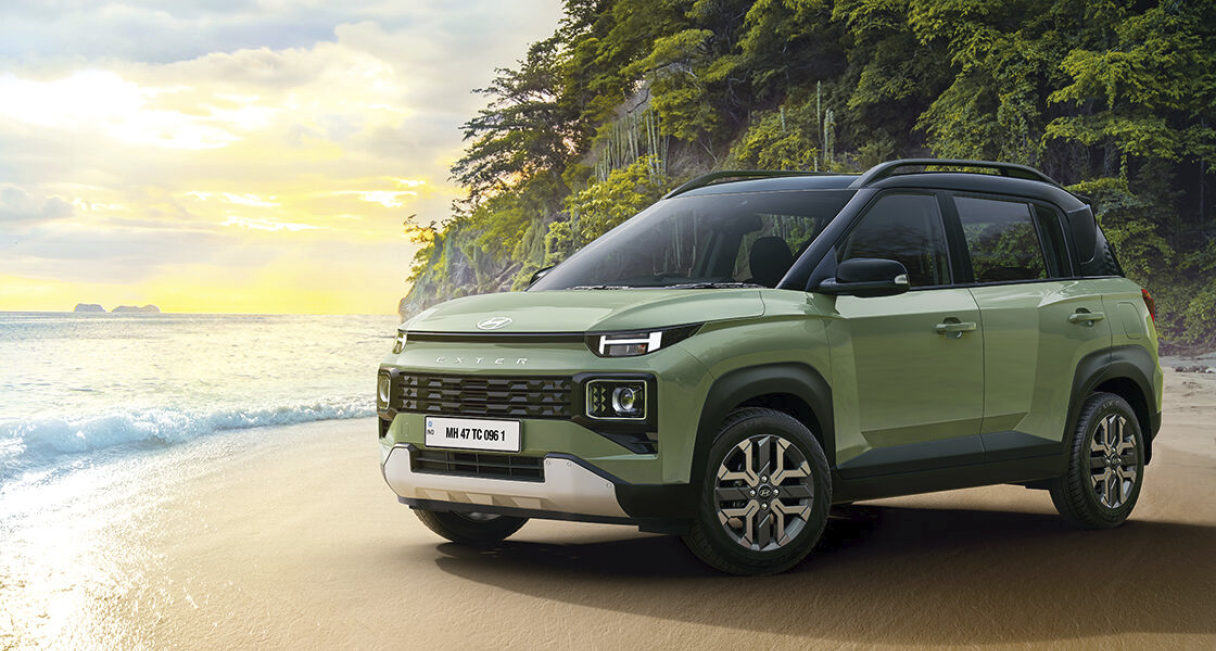
A prime example is the Exter, Hyundai Motor’s entry-level SUV and winner of the 2024 Indian Car of the Year (ICOTY) award. Launched in 2023, the model quickly gained widespread popularity thanks to its competitive pricing and features tailored to Indian customer preferences—selling over 47,000 units within just six months. Hyundai has since established a strong foothold in the market with a six-model SUV lineup, including the Venue, Tucson, and IONIQ 5, covering a broad range of segments.

Kia has recently introduced the Syros, a new global strategic model developed for the Indian market. This urban SUV is specifically tailored for local production and designed to suit modern urban lifestyles, featuring bold styling, advanced connectivity, and a comfortable interior. It also offers sliding, reclining, and ventilated rear seats, along with a suite of advanced driver-assistance systems and a dual panoramic sunroof—delivering one of the most premium driving experiences in its class.
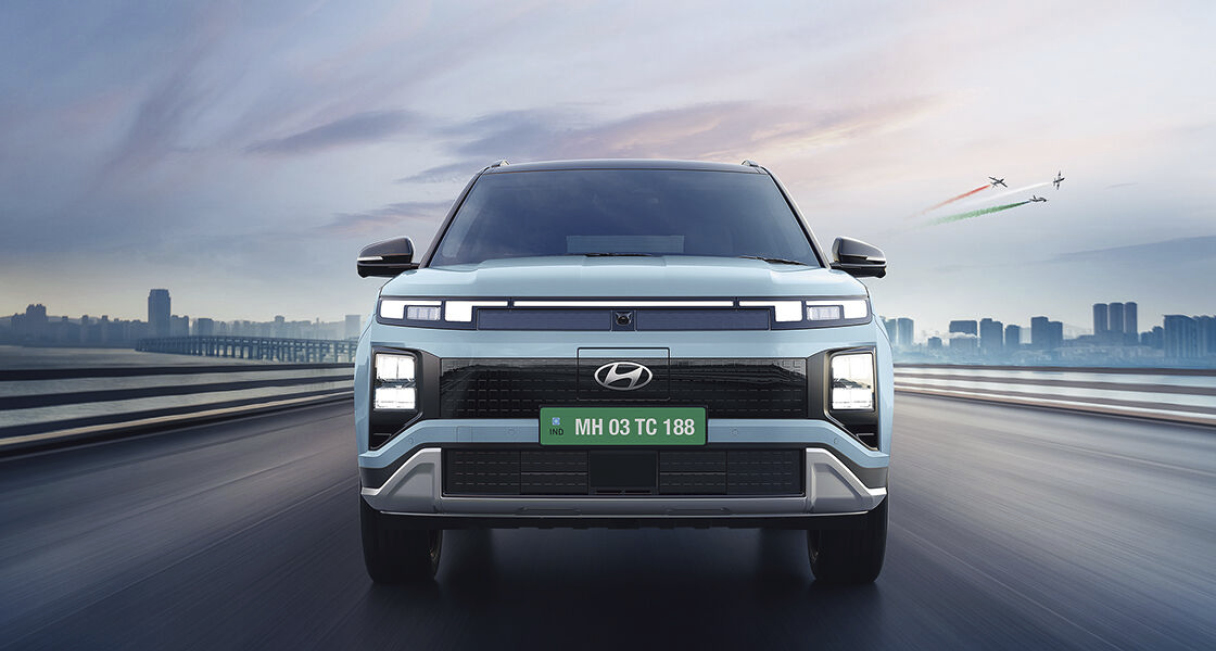
Hyundai Motor’s latest India-focused model is the Creta Electric, an EV version of the Creta—originally launched in 2015 as the brand’s first strategic SUV for the Indian market. It also marks Hyundai’s first electric vehicle to be produced locally in India. By 2030, Hyundai and Kia plan to roll out five electric models across the Indian market. This lineup will include compact electric SUVs and other regionally tailored models, supported by a dual strategy of Korean imports and local production to serve a broad range of customer needs.
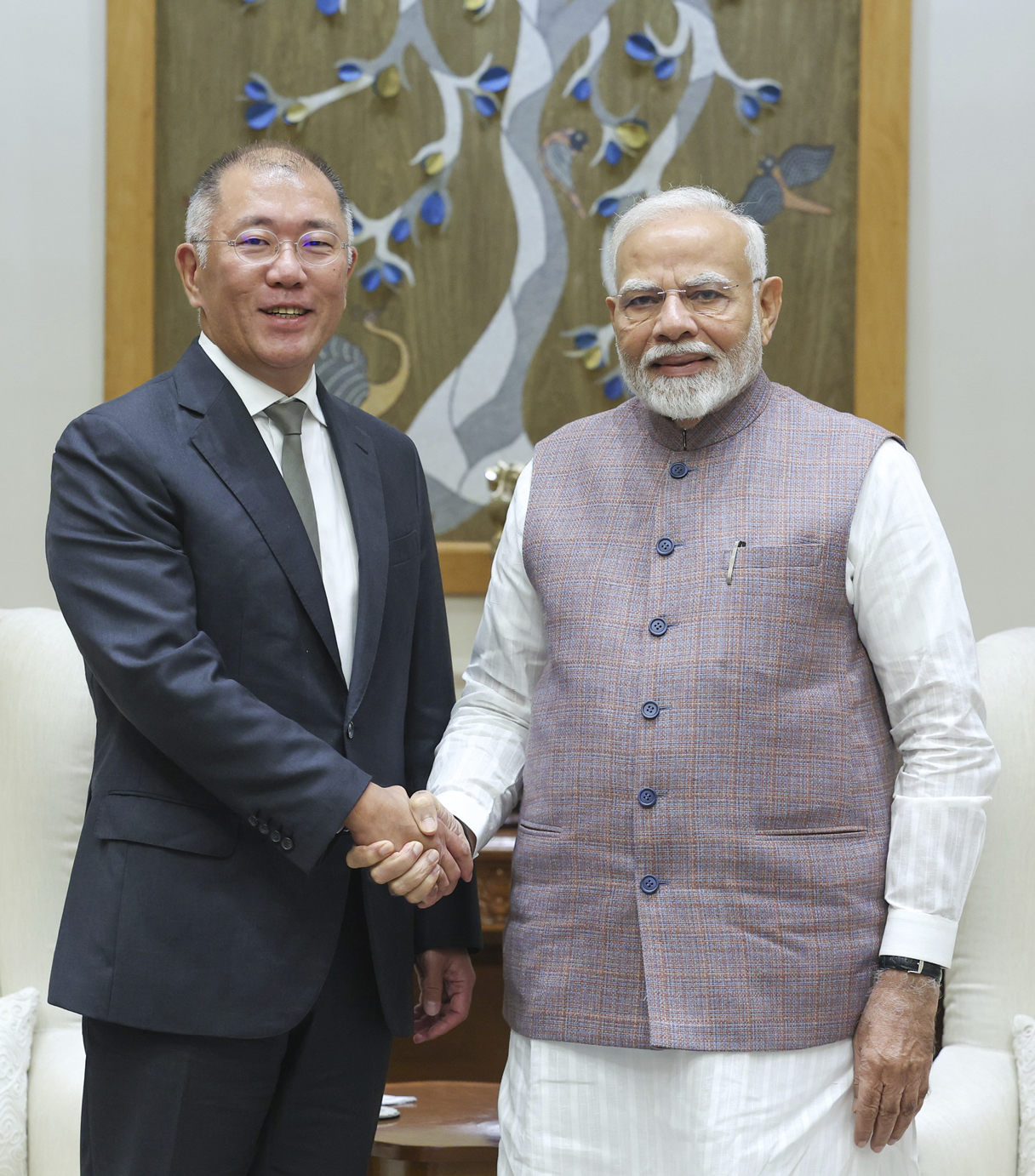
HMG’s electrification journey is deeply aligned with India’s mobility future. In 2024, CHAIRMAN Euisun Chung met with Prime Minister Narendra Modi to reaffirm the Group’s support for India’s EV expansion policies. This commitment goes far beyond launching electric vehicles—it encompasses the development of charging infrastructure, the localization of parts production, and the creation of a broader EV ecosystem across the country.
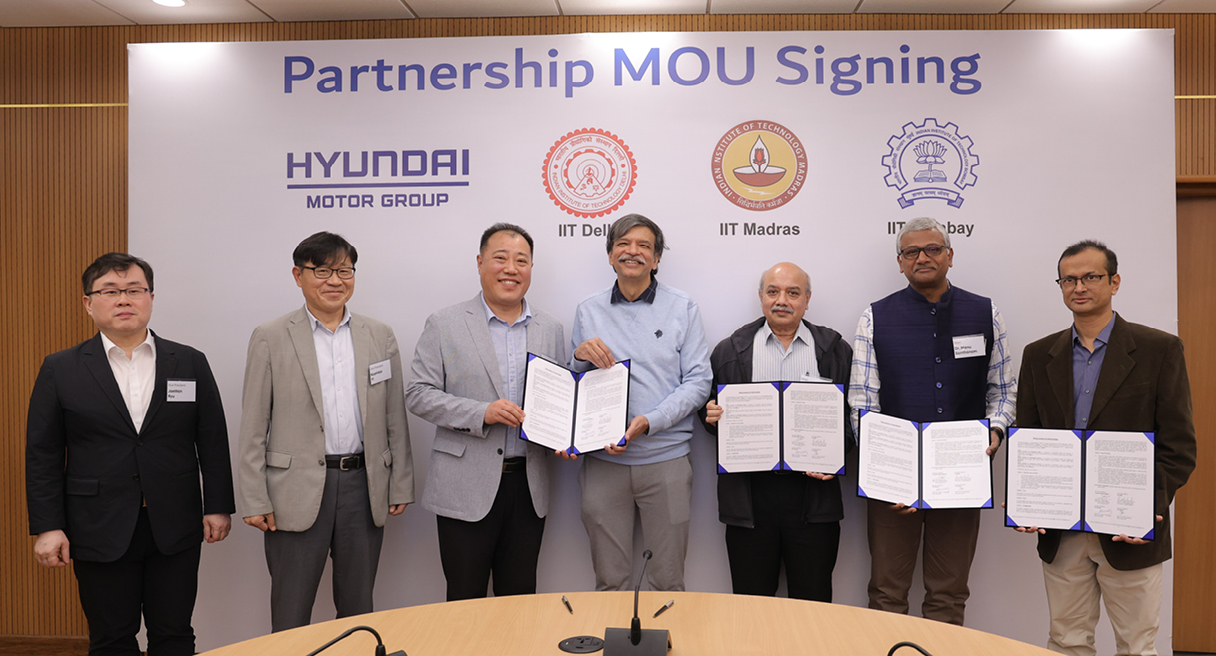
To strengthen their leadership in electrification, Hyundai and Kia have launched a joint research initiative with India’s top engineering institutions. The Hyundai Innovation Center, established in partnership with IIT Delhi, IIT Bombay, and IIT Madras, will serve as a hub for collaborative research in battery and EV technologies. Beginning in 2025, the Group will invest approximately KRW 10 billion over five years, while also expanding cooperation into areas such as software development and hydrogen fuel cell systems.
HMG is also strengthening its global innovation capabilities through ongoing collaboration between Hyundai Motor India Engineering in Hyderabad and Namyang R&D in Hwaseong, South Korea. The Group plans to establish a fully localized development system within the Indian facility, laying the foundation for it to serve as a global hub for small vehicle development.
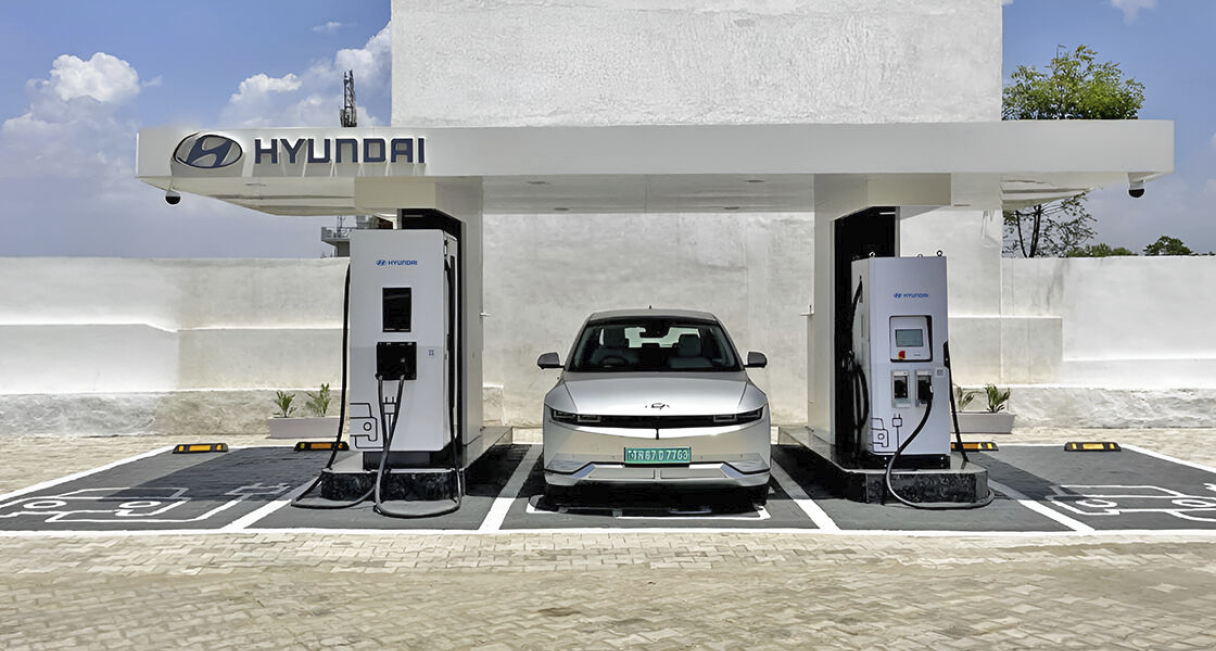
The Group is also actively contributing to the development of India’s EV ecosystem. This includes the localization of key components—such as battery systems, cells, and drivetrains—as well as nationwide investment in charging infrastructure. In 2023, an MoU signed with the Tamil Nadu state government laid the groundwork for a decade-long investment plan, which includes establishing a new battery pack assembly plant, expanding EV production, and installing 100 fast chargers in major regional hubs.
Electrification calls for a wide range of mobility solutions tailored to the unique needs of each market. Hyundai is stepping up its efforts in India with a focus on customized offerings. In January, the company participated in the 2025 Bharat Mobility Global Expo, held at the Bharat Mandapam Convention Center in Delhi, where it unveiled its “India Micro Mobility Vision” and introduced two concept models under its micro mobility initiative.
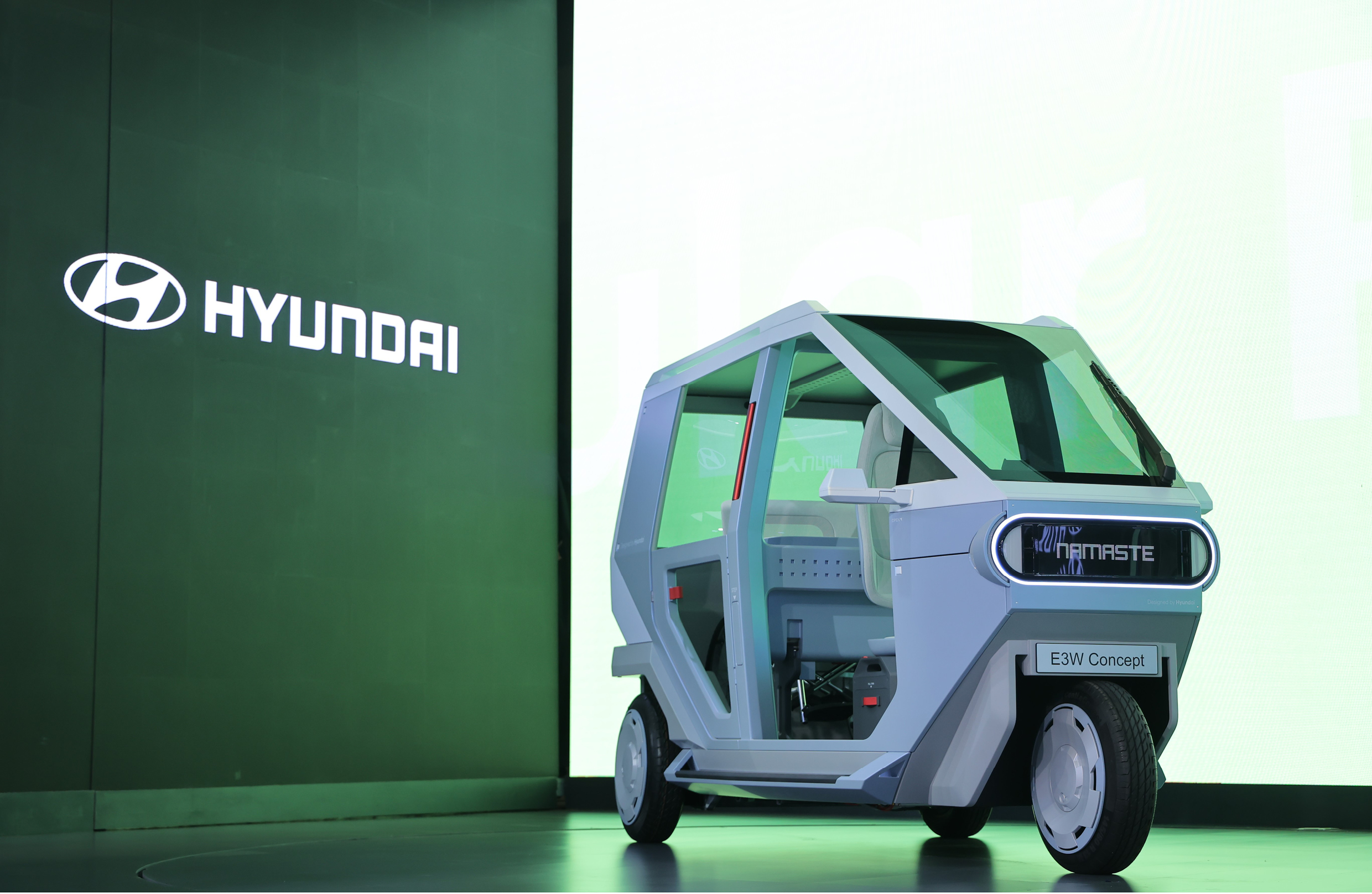
Micro mobility refers to small-scale, eco-friendly transportation such as electric scooters and ultra-compact EVs—modes widely used across India and the broader Asia-Pacific region. Hyundai aims to support this trend with the vision of “enhancing mobility experiences for Indian consumers through safe and sustainable micro mobility,” and is currently exploring the mass production of electric three-wheelers and compact four-wheelers tailored to the local market.
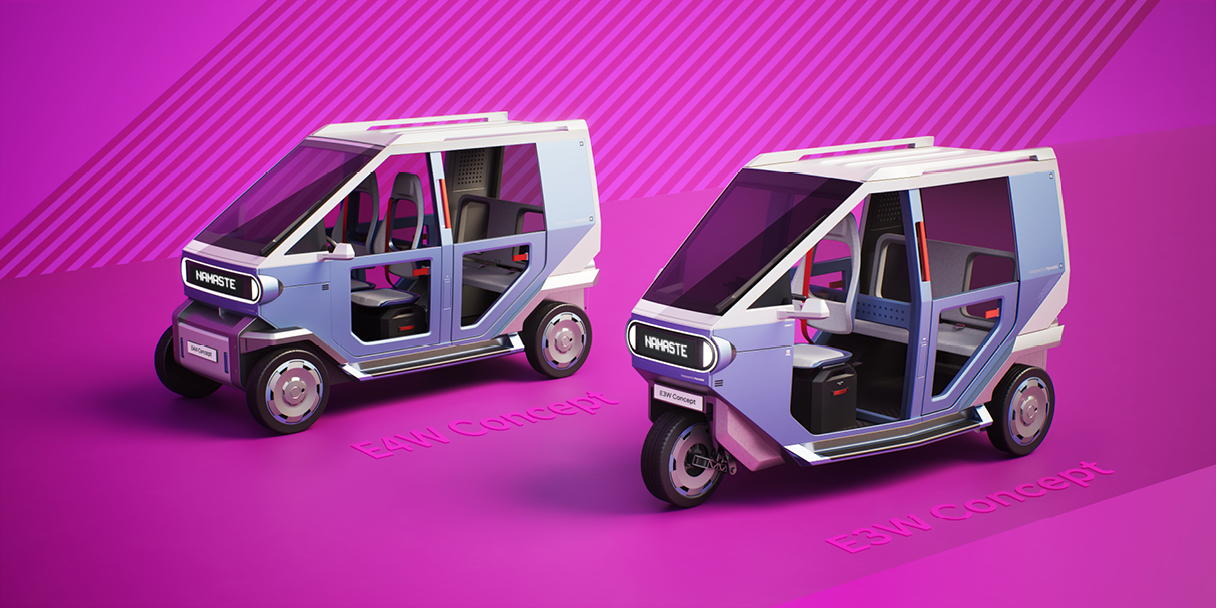
Hyundai’s newly revealed electric three-wheeler and micro four-wheeler concepts are optimized for India’s high-density traffic and narrow roadways, featuring a compact footprint for enhanced maneuverability. Despite their size, they deliver impressive ride comfort and stability. Notably, the three-wheeled concept—designed with India’s high usage of such vehicles in mind—comes equipped with practical features such as a tow hook and a foldable seat for wheelchair users, making it suitable for various applications including personal mobility, logistics, and emergency response.
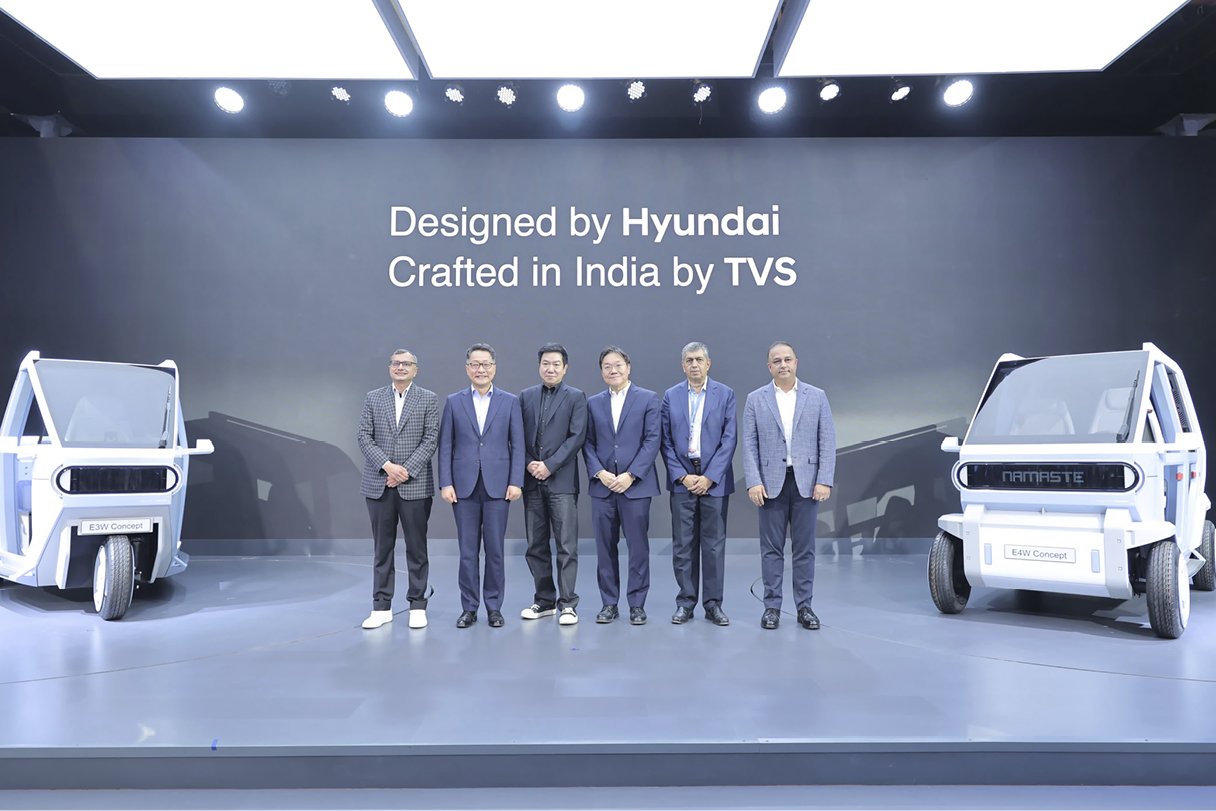
Hyundai plans to continue developing mobility solutions tailored to India’s unique environment, with production versions of its two micro mobility concepts currently under review for enhancements such as thermal-insulation paint and expanded use of waterproof materials to withstand heavy monsoons. A potential collaboration with TVS Motor—India’s leading three-wheeler manufacturer—is also being explored. Under this partnership, Hyundai would provide technical expertise in design and engineering, while TVS would manage local manufacturing and sales. Through this approach, Hyundai aims to support both improved mobility and the advancement of India’s manufacturing sector through next-generation micro mobility.
Achieving these ambitious plans requires ample production capacity. HMG is expanding its operations to support the production of 1.5 million vehicles annually for the Indian market. This includes Hyundai Motor’s first and second plants in Chennai, Kia’s manufacturing facility in Anantapur, and the ongoing construction of a third Hyundai plant in Pune, Maharashtra.
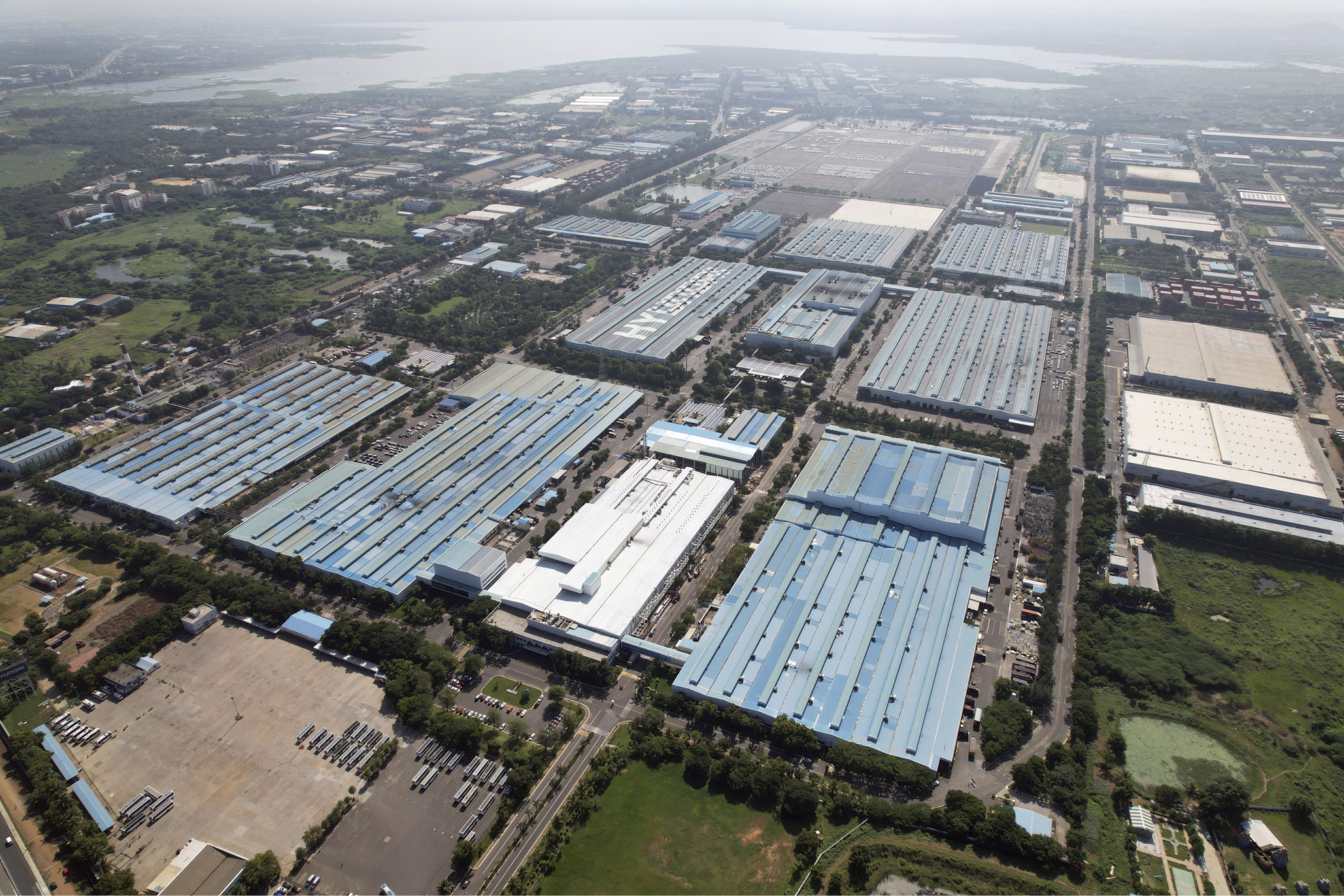
In 2023, Hyundai’s two Chennai plants increased their combined annual production capacity from 770,000 to 824,000 units through the addition of a new paint line and expanded facility investments. In early 2024, Kia’s Anantapur plant established a flexible production line capable of manufacturing both internal combustion and electric vehicles, raising its capacity to 431,000 units per year. Upon completion of the new plant in Pune, Hyundai Motor Group’s total annual production capacity in India will reach 1.5 million units.
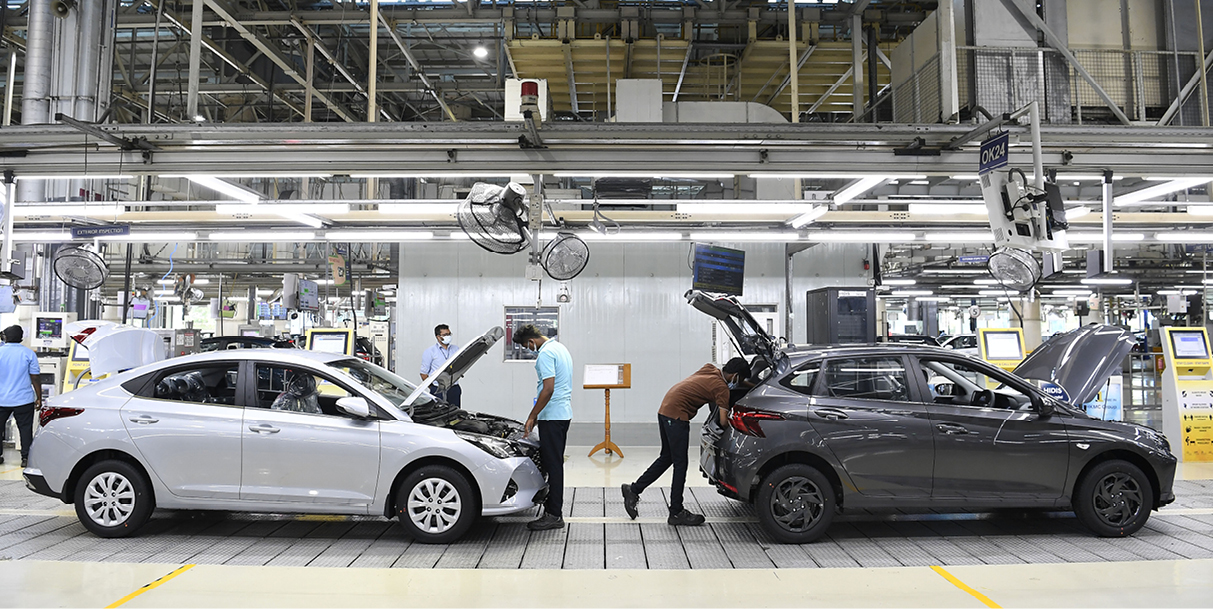
Hyundai’s Pune plant in Maharashtra is set to be completed in the second half of this year and will incorporate the brand’s top-tier smart manufacturing system. It will begin with a production capacity of 170,000 units, with plans to expand to 250,000 units by 2028. This expansion will allow Hyundai Motor Group to proactively adapt to market fluctuations while enhancing operational efficiency and customer experience.
Hyundai Motor Group’s sincerity in the Indian market goes beyond products and services. In October 2024, Hyundai Motor India Limited (HMIL) was newly listed on the Indian stock exchange in what became the largest IPO of the year. This marked only the second time a foreign carmaker had been listed in India—and the first-ever public offering by a Hyundai overseas subsidiary.
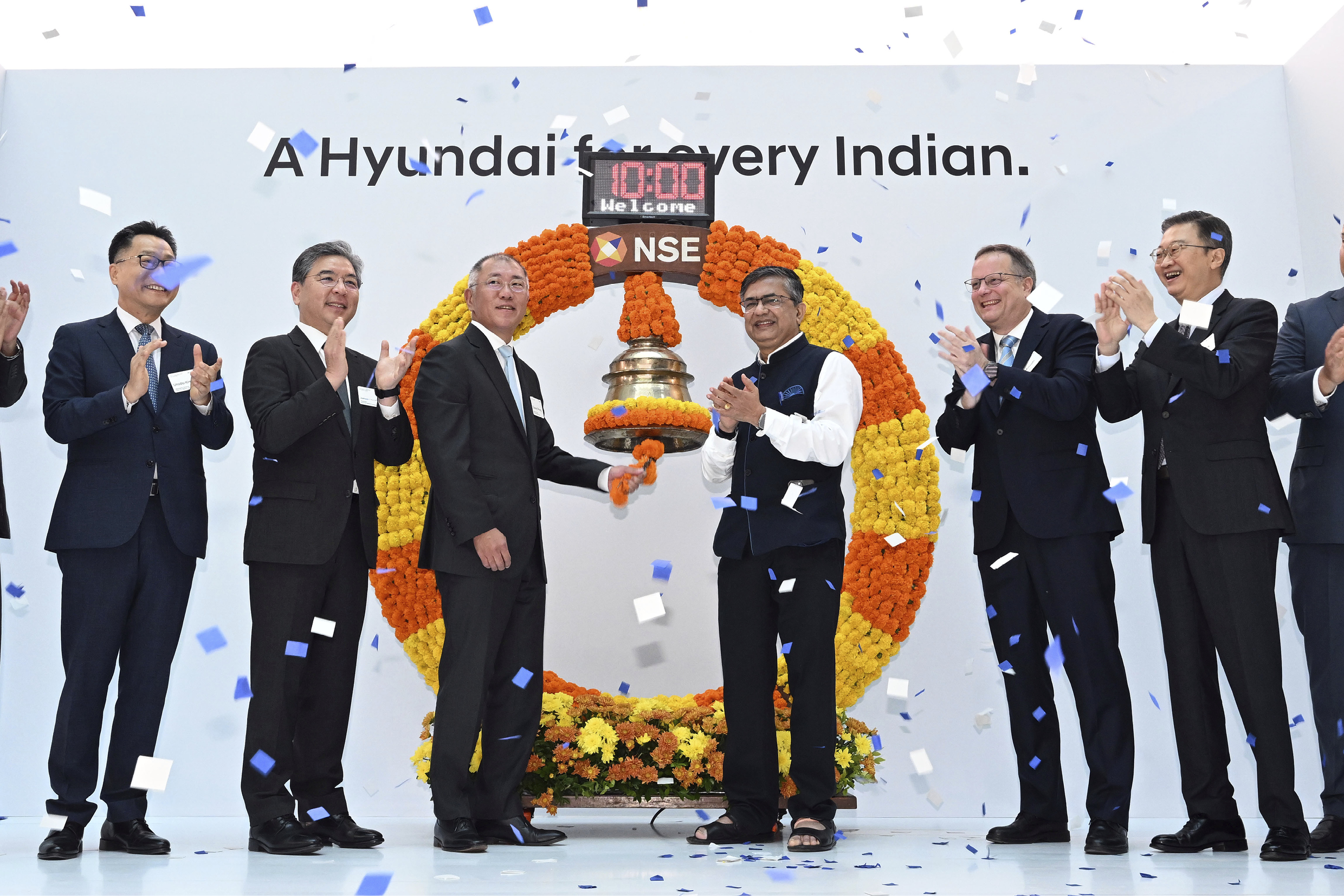
Speaking at the listing ceremony, CHAIRMAN Euisun Chung stated, “Hyundai Motor India has become an integral part of India since the day we entered this market. We will continue to uphold world-class standards of governance, making timely and transparent decisions through the board of directors. At the same time, we will strengthen our commitment to localization, rooted in the spirit of collaboration and co-prosperity.” He concluded, “Our journey to become a pioneer in future technologies will continue—right here in India.”
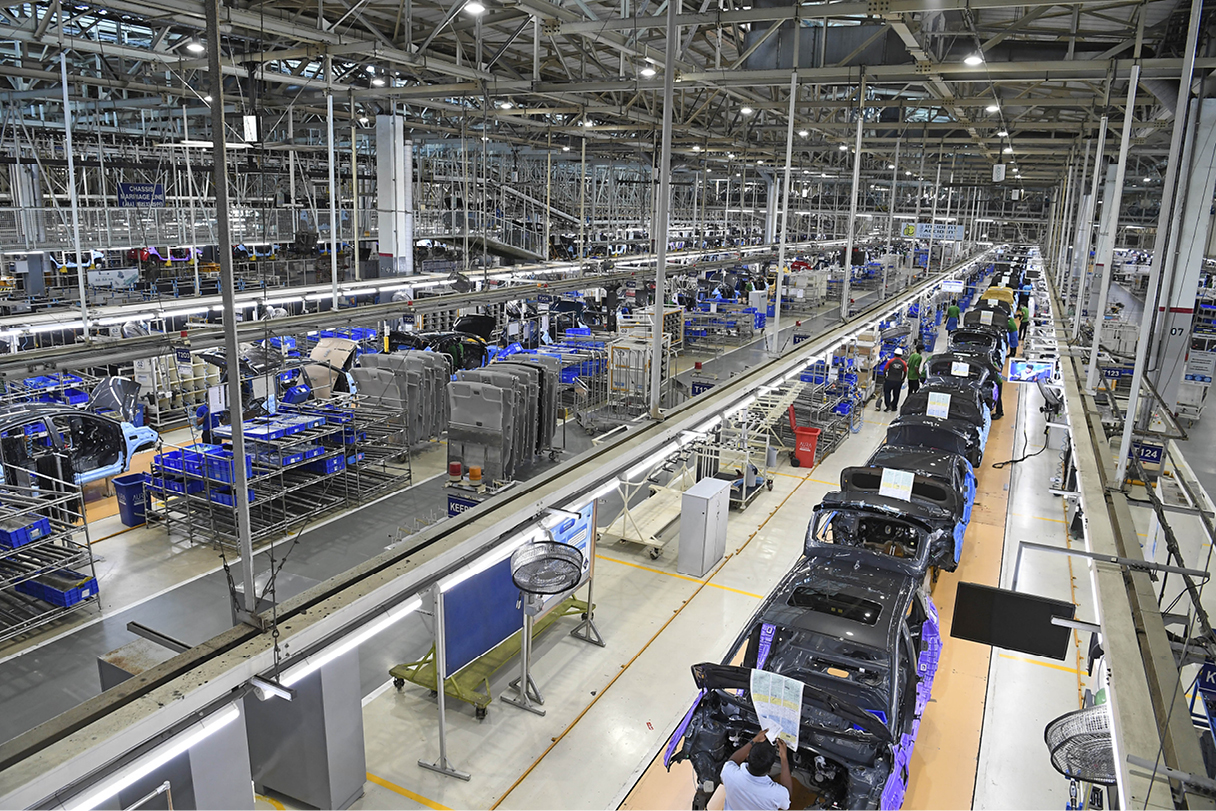
Hyundai plans to position its India operations as a strategic hub for expanding into emerging markets across the Middle East, Africa, South and Southeast Asia, and Latin America. As part of this vision, the company will strengthen transparency within its Indian subsidiary and increase investment in innovation, product development, and advanced R&D capabilities.
Kia has emerged as one of the most customer-satisfying brands in India. In September 2024, the Federation of Automotive Dealer Associations (FADA) ranked Kia first overall in the mass-market category of its Customer Experience Index.
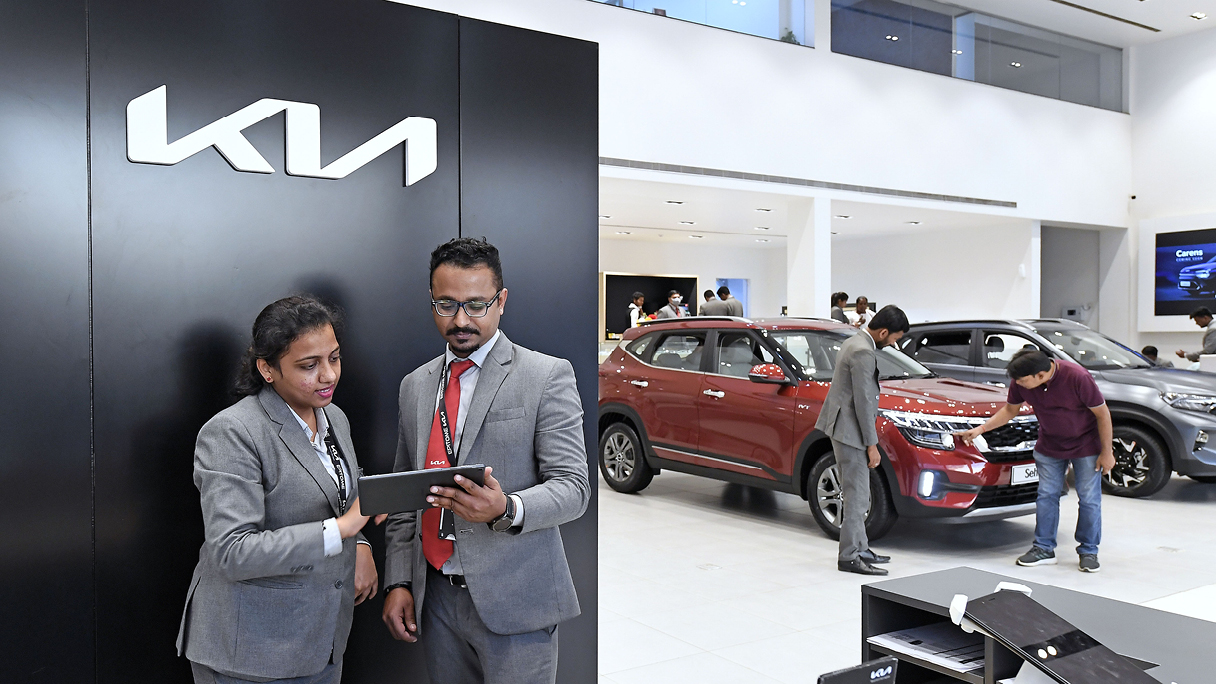
FADA is a highly respected organization representing approximately 15,000 dealerships across India, working closely with both the government and automakers to deliver valuable market insights. In its inaugural 2024 Customer Experience Index survey, over 8,000 respondents evaluated their experiences across three key categories: sales, service, and product. Kia ranked first in two of the three—sales and service—earning the highest overall score among 12 mass-market brands.
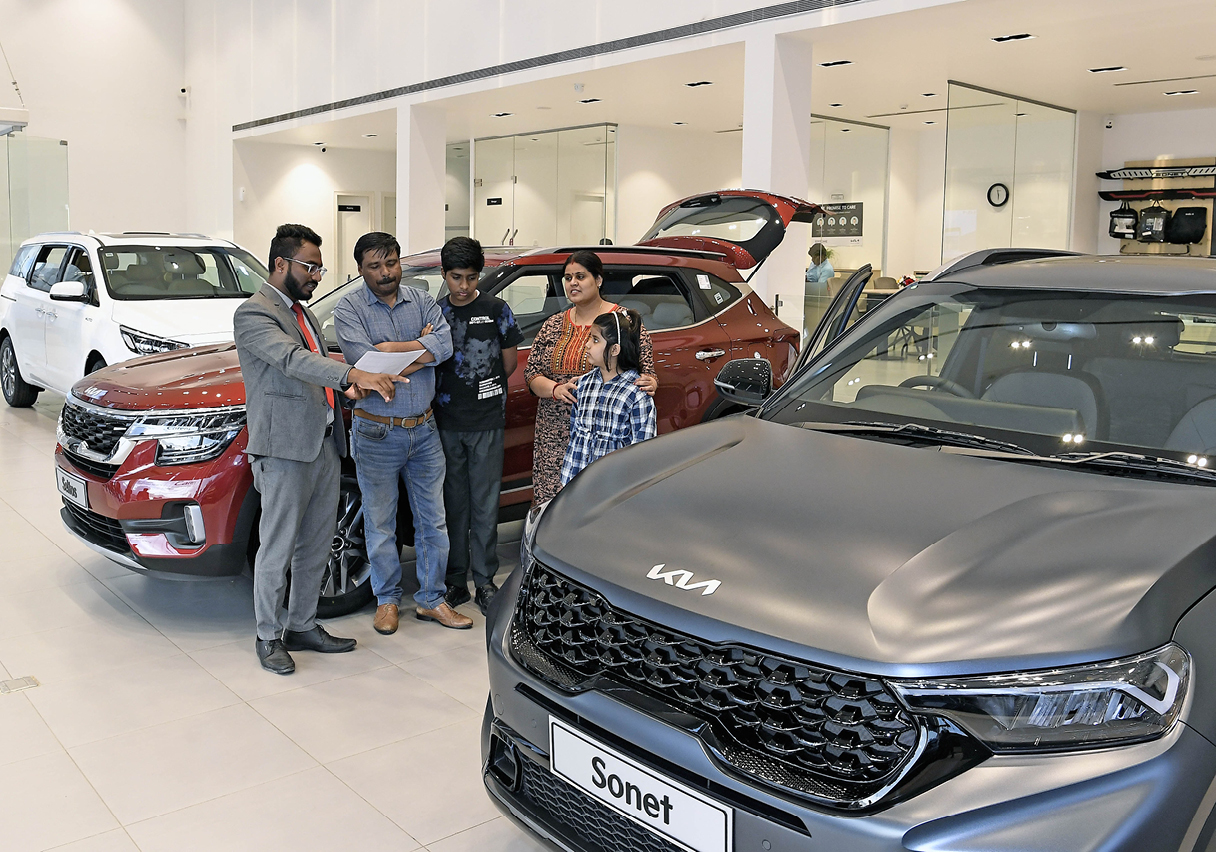
Kia earned top marks in the sales category for its test drive experience, sales staff responsiveness, and overall customer engagement. In the service category, the brand received the highest scores for repair quality and service center operations. These results reflect Kia’s unwavering commitment to customer-first management—even in the fast-growing and highly competitive Indian market.
Hyundai Motor entered the Indian market in 1996 and has since grown into the country’s second-largest automobile manufacturer. This remarkable achievement was made possible by the trust and support of the Indian people—consumers in one of the world’s most dynamic automotive markets.

Hyundai Motor Group is fully aware of its role in shaping India’s future. The Group is actively contributing to the nation’s economic progress by advancing the automotive industry, generating employment, and boosting exports. Through sustained investment and growth, HMG aims to be a trusted partner in India’s ‘Make in India’ initiative and ‘India@2047’ vision. The ultimate goal? To become the country’s leading mobility company—built on the enduring trust and loyalty of Indian customers.